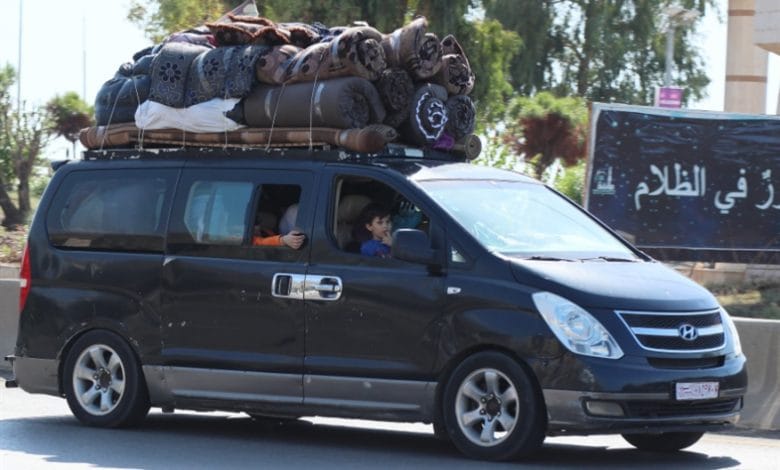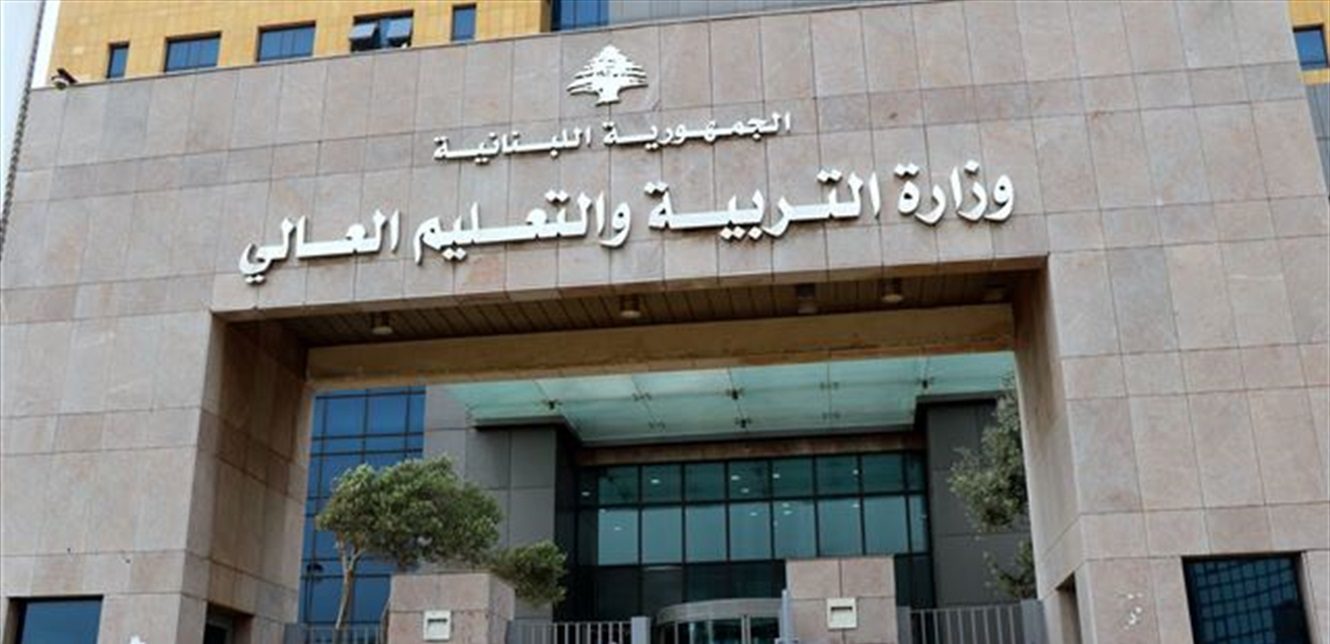الصحّة النفسية للبنانيين في خطر… وخطة طوارئ وطنية لمواكبتهم
لا يزال اللبناني محمد.ر (34 عاماً) يزور منزله في منطقة برج البراجنة بالضاحية الجنوبية لبيروت بشكل شبه يومي، حيث يستحم، ويشرب القهوة، ويجمع بعض الحاجيات، رغم المخاطر والتهديدات التي تحيط به. يشعر محمد براحة نفسية عندما يكون في منزله، محاطاً بأغراضه الخاصة. ويقول محمد لـ«الشرق الأوسط»: “أنا مدرك تماماً أنني أعاني من اضطراب نفسي. لن يكون طبيعياً ألا نعاني من مشاكل نفسية بعد كل ما مررنا به، وقد جاءت الحرب الحالية لتدمّر وضعنا النفسي بالكامل”.
محمد لا يفكر في الوقت الراهن في طلب مساعدة من مختصين نفسيين، لكنه قد يعيد النظر في ذلك بعد انتهاء الحرب. ويضيف: “أنا أطلب أحياناً رأي مختصين لمعرفة كيفية التعامل مع أطفالي في ظل رحلة التهجير التي نعيشها، ولإجابتهم على أسئلتهم عن أصوات القصف وما تعنيه الحرب”.
اضطرابات نفسية حادة
يعيش محمد مثل العديد من اللبنانيين النازحين وغير النازحين، وهم مدركون أنهم يعانون من اضطرابات نفسية، لكنهم لا يعطون ذلك أولوية في ظل ما يعيشونه. ما يهمهم اليوم هو الصحة النفسية لأطفالهم. بينما بلغ قسم من اللبنانيين حالة نفسية متقدمة دفعتهم للبحث عن المساعدة. وقد استعدت وزارة الصحة لتقديم الخدمات الطبية الأساسية، كما وضعت خطة طوارئ متكاملة تتعلق بالصحة النفسية، أعدها «البرنامج الوطني للصحة النفسية» بالتعاون مع شركاء من النقابات والمنظمات المحلية والدولية.
خطة طوارئ للصحة النفسية
تضمنت هذه الخطة التي تم وضعها في أكتوبر 2023 وتم تحديثها في سبتمبر 2024 بالتوازي مع توسع الحرب، التنسيق بين جميع الشركاء لتيسير وصول الناس إلى خدمات الصحة النفسية والدعم النفسي، بالإضافة إلى الاستجابة للحالات النفسية الطارئة. الخطة تشمل المستشفيات، مراكز الرعاية الصحية الأولية، مراكز الإيواء، وتوفير خط ساخن للدعم النفسي، بالإضافة إلى ضمان توافر الأدوية النفسية لجميع المستفيدين.
الأرقام والإحصاءات
مدير «البرنامج الوطني للصحة النفسية» ربيع الشمّاعي شدد على أهمية الاهتمام بالصحة النفسية خلال الأزمات، مؤكداً أن “ذلك يُعتبر من الأولويات، وليس من الكماليات”. ووفقاً لمنظمة الصحة العالمية، يحتاج واحد من كل خمسة أشخاص يتعرضون لأزمة إنسانية مثل الحروب أو الكوارث الطبيعية إلى خدمات الصحة النفسية. ويوضح الشمّاعي أن الخطة التي أعدها البرنامج ليست موجهة فقط للنازحين، بل تشمل جميع اللبنانيين الذين يعانون من مشاعر القلق والخوف بسبب الوضع غير المستقر. كما أظهرت دراسة سابقة أن 60% من اللبنانيين يعانون من اضطرابات نفسية.
خط ساخن للدعم النفسي
يُوضح الشمّاعي أن معظم الاتصالات التي ترد عبر الخط الساخن (1564) تكون للاستفسار عن الأماكن التي تقدم خدمات الصحة النفسية، أو كيفية التعامل مع الأطفال الذين يعانون من أعراض نفسية، أو من يحتاجون إلى خدمات صحية أخرى. منذ بدء تطبيق الخطة، تلقى الخط الساخن نحو 1321 اتصالاً طلباً للمساعدة، ويمكن تقديم الدعم عبر التطبيق الإلكتروني أيضاً.
المشكلات النفسية لدى النازحين
تتعدد المشكلات النفسية التي يعاني منها النازحون، كما تذكر مستشارة الصحة النفسية سابين صادر. تقول: “النازحون فقدوا منازلهم التي كانت تمثل الأمان بالنسبة لهم، ولذلك يشعرون بالخوف والقلق والاضطراب والغضب والعجز، وهذه كلها مشكلات نفسية شائعة”. وتضيف صادر أن تداعيات هذه المشكلات النفسية لا تقتصر على النازحين فقط، بل تشمل جزءاً كبيراً من اللبنانيين الذين يعيشون في حالة من القلق المستمر على أمنهم.
التداعيات على المستقبل
تشير مستشارة الصحة النفسية إلى أن تداعيات هذه المشكلات النفسية قد يكون لها تأثير طويل الأمد على الأفراد، خاصة الأطفال، الذين تأثروا بشكل كبير بسبب الحرب. وتلفت إلى أن العديد من الأشخاص الذين كانوا في طريقهم للتعافي من تداعيات انفجار مرفأ بيروت، قد ساءت حالتهم النفسية مجددًا بسبب الحرب الحالية.
خاتمة
تشير هذه القصة إلى الأثر العميق الذي تركته الحرب على الصحة النفسية للبنانيين، وخاصة مع استمرار النزوح وعدم الاستقرار الأمني. ومن خلال الخطة الوطنية للطوارئ التي أعدتها وزارة الصحة، تأمل الحكومة اللبنانية في توفير الدعم النفسي للأفراد والعائلات المتضررة، وتهيئة بيئة آمنة تساعد على التعامل مع التحديات النفسية في هذه الفترة الصعبة.
المصدر: بولا أسطيح – الشرق الأوسط
Mental Health of Lebanese at Risk… and a National Emergency Plan to Support Them
Lebanese man Mohammad R. (34 years old) still visits his home in the Burj al-Barajneh area in the southern suburbs of Beirut almost daily. He takes a shower, drinks coffee, and gathers some personal belongings, despite the risks and threats surrounding his every move. He finds peace of mind being in his home, surrounded by his belongings. Mohammad tells Asharq Al-Awsat: “I am fully aware that I am suffering from a mental disorder. It wouldn’t be natural not to suffer from mental issues after everything we’ve gone through, and this current war has completely destroyed our mental well-being.”
Currently, Mohammad isn’t thinking about seeking help from mental health specialists, but he says he may reconsider after the war ends. He adds, “I sometimes ask specialists for advice on how to deal with my children during this displacement journey, and to get answers to their questions about the sounds of bombings and what war means.”
Psychological Disorders Intensify
Like many Lebanese people, both displaced and non-displaced, Mohammad is aware that he suffers from psychological disorders, but he doesn’t prioritize it amidst what’s going on around him. What matters most to him right now is his children’s mental health. However, some Lebanese have reached a level of psychological distress that has led them to seek professional help. In response, the Ministry of Health has prepared a basic medical service plan and also devised an emergency mental health plan, developed by the “National Mental Health Program” with various partners including local and international organizations and unions.
Emergency Plan for Mental Health
The plan, developed in October 2023 and updated in September 2024 as the war escalated, involves coordinating efforts among all partners to facilitate people’s access to mental health services, psychological support, and emergency psychological responses. The plan includes hospitals, primary health care centers, mental health support in shelters, and a helpline for psychological support, while ensuring the availability of mental health medications for both new and existing beneficiaries.
Statistics and Figures
Rabih Chamari, the director of the “National Mental Health Program,” emphasizes that mental health care during crises is critical and is part of the country’s priorities, not a luxury. According to the World Health Organization, at least one in five people exposed to humanitarian crises, such as war or natural disasters, will need mental health services. Chamari explains that the program’s plan doesn’t only cater to displaced individuals, as many Lebanese are also affected by the absence of security and live in constant fear. A previous study conducted in Lebanon showed that 60% of those surveyed had a mental disorder, and Chamari notes that the war has undoubtedly exacerbated these figures.
Helpline for Mental Health Support
Chamari mentions that most of the calls received through the helpline (1564) are from people asking about where to access mental health services or how to deal with children showing specific symptoms. Others are seeking general health services, protection, or food and shelter assistance. Since the launch of the plan, around 1,321 people have reached out to the helpline for help, with support also available via a digital application.
Psychological Issues Among Displaced People
Mental health issues among displaced individuals are numerous, as noted by mental health consultant Sabine Sader. She explains: “Displaced people have had to leave their homes, which usually represent safety for anyone. When we lose that safety, we inevitably experience fear, anxiety, distress, anger, frustration, and helplessness—all common psychological issues.” She also stresses that the psychological repercussions are not limited to the displaced but affect a significant portion of the Lebanese population who live in constant fear for their safety.
Impact on the Future
Sabine Sader warns that the psychological consequences could have long-lasting effects, particularly on children. She notes that many individuals who were beginning to recover from the aftermath of the Beirut port explosion have seen their mental health deteriorate once again due to the ongoing war.
Conclusion
This article highlights the profound impact the ongoing war has had on the mental health of Lebanese citizens, especially amidst the displacement and instability. Through the national emergency mental health plan, the Lebanese government hopes to provide essential psychological support to the affected individuals and families, creating a safer environment to help them cope with the mental health challenges they face during this difficult time.
Translated by economyscopes team
 سكوبات عالمية إقتصادية – EconomyScopes إجعل موقعنا خيارك ومصدرك الأنسب للأخبار الإقتصادية المحلية والعربية والعالمية على أنواعها بالإضافة الى نشر مجموعة لا بأس بها من فرص العمل في لبنان والشرق الأوسط والعالم
سكوبات عالمية إقتصادية – EconomyScopes إجعل موقعنا خيارك ومصدرك الأنسب للأخبار الإقتصادية المحلية والعربية والعالمية على أنواعها بالإضافة الى نشر مجموعة لا بأس بها من فرص العمل في لبنان والشرق الأوسط والعالم




